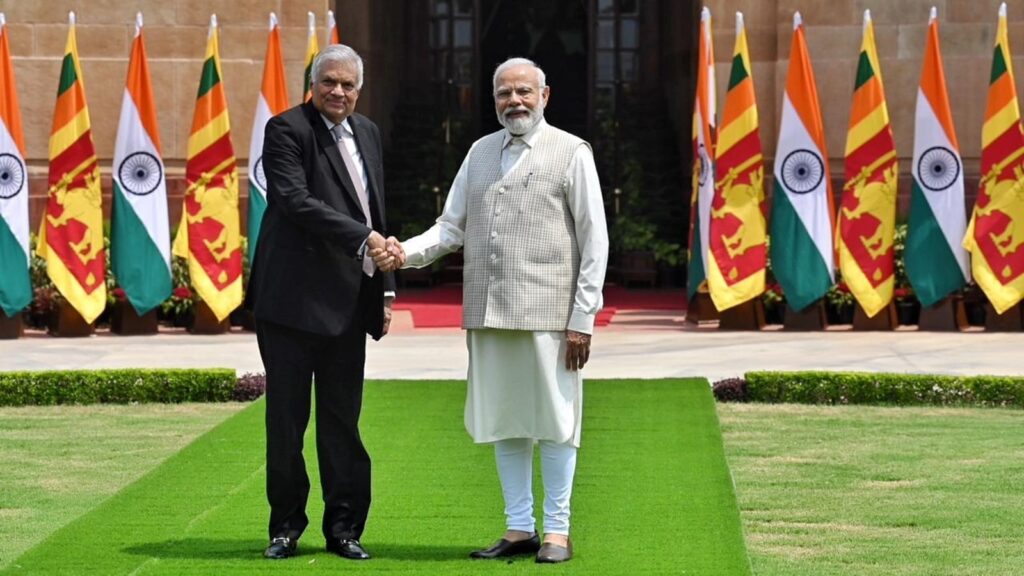Sri Lankan President Ranil Wickremesinghe’s visit to India last week concluded with the unveiling of an ambitious new economic partnership aimed at firming up trade, energy and physical connectivity between the two countries and simultaneously helping the island nation overcome its continuing balance of payments crisis. Some measures included in the vision document for this partnership, such as an agreement on the acceptance of India’s Unified Payments Interface (UPI) system, are expected to be in place within the coming months. Other elements, such as a planned petroleum pipeline and land connectivity (a move proposed by Mr Wickremesinghe himself during talks with Prime Minister Narendra Modi), will require more time and considerable preparation, including feasibility studies. However, it is clear the economic partnership is aimed at countering China’s growing footprint in the neighbouring country. It was in this context that Mr Modi spoke about the security interests and development of the two countries being intertwined and emphasised the need for India and Sri Lanka to work together while keeping in mind “each other’s safety and sensitivities”.
Sri Lanka’s decision to allow a visit by a Chinese surveillance vessel to the Chinese-controlled Hambantota port in August 2022 after India extended support to the island to cope with the unprecedented crisis didn’t go down well with New Delhi. The Chinese vessel’s visit was opposed by both India and the US, and New Delhi was particularly irked as Beijing had done virtually nothing to help Colombo address its economic problems. India extended aid worth almost $4 billion to Sri Lanka last year, whereas Colombo’s efforts to secure a bailout from the International Monetary Fund (IMF) were held up for many months because of the stance adopted by Beijing. Indian officials made it clear that any fresh measures under the new economic partnership won’t add to Sri Lanka’s debt burden.
Greater integration between the economies of India and Sri Lanka – especially through steps such as a power grid interconnection, expediting work on a solar power project, LNG infrastructure and the development of the Trincomalee oil tank farms as a regional hub for energy and industrial activities – should effectively reduce China’s ability to establish a greater foothold in the immediate neighbourhood. This is why the vision document highlighted the salience of bilateral economic engagements, especially during Sri Lanka’s economic crisis. It is now for India to step up to the plate and deliver.
Enjoy unlimited digital access with HT Premium
Subscribe Now to continue reading


